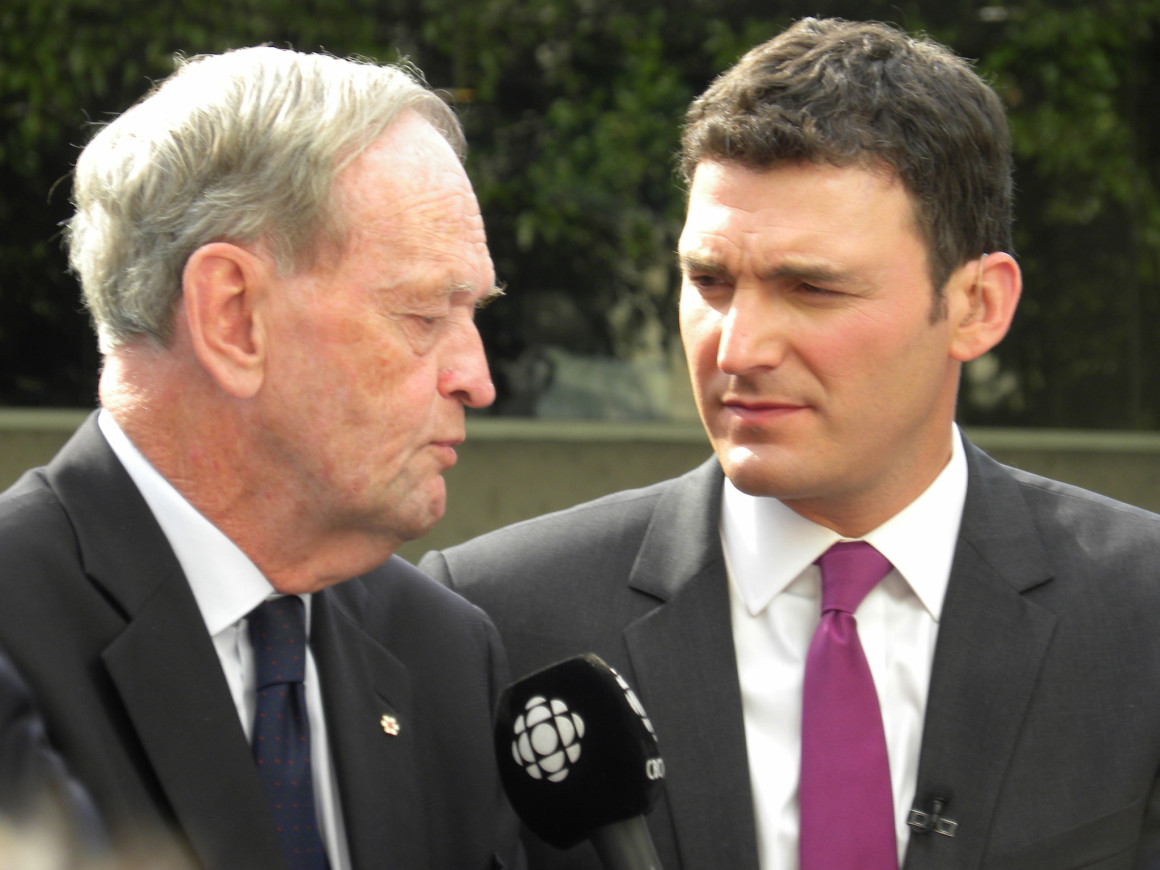
CBC’s Evan Solomon talks Canadian politics, Alberta budget and public broadcasting
By Fabian Mayer, April 2 2015 —
Evan Solomon, the host of CBC News Network’s flagship political affairs program, Power and Politics, was on campus last Thursday to film his show on budget day. Following the program, we sat down with him to talk about both Albertan and Canadian politics, what his thoughts are on a possible NDP-Liberal coalition and the state of public broadcasting in Canada.
The Gauntlet: What’s the significance of this budget for Alberta?
Evan Solomon: I think it’s a significant budget for Jim Prentice because he’s asking Albertans things that they haven’t been asked to do in a long time. He’s going to ask them to pay health-care premiums. They thought they’d stopped that under Ed Stelmach in 2009. He’s going to ask them to change their income tax from a flat 10 per cent to a graduated income tax — that’s a big deal. He’s going to ask them to pay more on the sins — liquor and cigarettes. He’s going to ask them to pay more on all sorts of things.
So all of a sudden people are going to pay a lot more for services and those are really big deals in Alberta, and he doesn’t have a mandate to do it. He’s likely going to have to go to the polls, that’s the widespread speculation. The other issue is there will be cuts coming, but the question is, has he really cut yet? The cuts aren’t that deep. He’s frozen spending, which is a de facto cut with inflation. How much he’ll cut will be a question.
This is part one. He’s testing the waters to see how far he can go before an opposition in Alberta wakes up. But for sure this is a consequential budget.
So you think there will be deeper cuts in the future?
Budgets are both political documents and financial documents. Politically, this is a test budget. He didn’t want to come in with no mandate and have a radical budget. I think he read the signs and [realized] we better do this incrementally, we better do this gradually.
So he’s tucked his foot in and done some small things that he’s hoping don’t ignite a resistance because he’s got a lot of political capital.
He’s a new premier. People seem to like him. He took out the Wildrose in some kind of David Copperfield political magic and reduced them from what was seen as a very viable opposition to the Progressive Conservative Party.
So yeah, I think there will be a couple [tough] budgets. Again, it all depends on the price of oil and if it stays at 50 bucks, they’ve got problems.
Where the polls stand now federally, a Conservative minority government following the next election is a strong possibility. If that happens do you think the NDP and Liberals will cooperate in an attempt to form government?
There’s a split on the progressive left between the Liberals and the NDP in places like Quebec. How does that split play out? There’s an economy that could either have a surplus with money to spend or not a surplus. We just don’t know depending on the price of oil. There are a lot of fluid factors.
Now you ask about the coalition. Could the NDP and the Liberals unite? Stephen Harper made coalition a dirty word. Justin Trudeau said no. Thomas Mulcair is widely open to having a coalition. He would love to have it.
I don’t think there’s a lot of affection between Thomas Mulcair and Justin Trudeau. Most reports say that they’re not two guys that go for a beer too often so I don’t know if they’re going to get in a room together and hash out a coalition. And the Liberals are ruling it out right now.
But politics makes for strange bedfellows and circumstances can change very quickly. If it’s a very tight race anything could happen.
It seems like the CBC is always facing cuts to its budget. What’s the state of public broadcasting in Canada?
All broadcasters are facing challenges, not just the public broadcaster.
Private broadcasters are facing disruptions from new media. We’re in this ecological boom time with blogs and services like Netflix, delivery services, producers of content. There’s a lot of challenges. We’re all trying to figure out what our role in this ecosystem is.
I’ll tell you a couple things that I believe in. I’m not going to predict how people get their news or their information, but people will get news and people will get information. I’ll tell you one thing. I do believe they’ll want the good stuff, not the bad stuff. There’s no world where quality doesn’t matter.
Quality is hard. It’s hard to do day in and day out. People want real stories, they want investigative stories, they want human stories, they want true stories. That takes work, and people will pay for quality [whether] it gets delivered on their phone or if gets delivered on a piece of wood. I really don’t care about the distribution, my job is to provide the story.
Quality will last, and I’m going to got to my grave betting on that.
Edited for clarity and brevity
